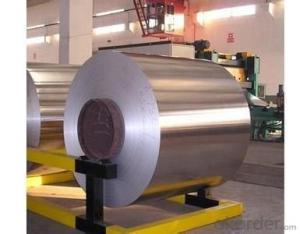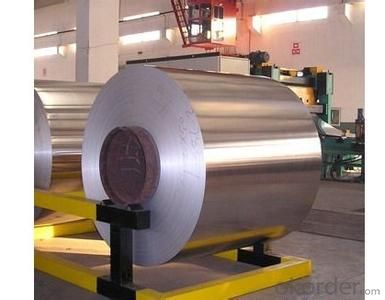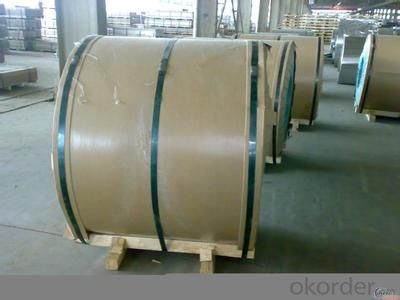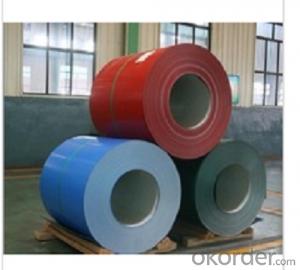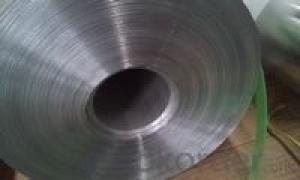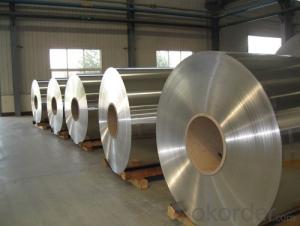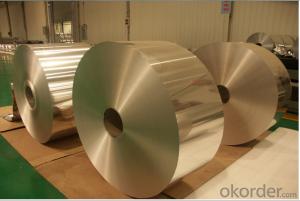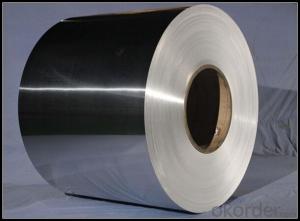Aluminum Sheet Coil Price - Alloy 1050 High Corrosion Resistance Coil
- Loading Port:
- Shanghai
- Payment Terms:
- TT or LC
- Min Order Qty:
- 10 m.t.
- Supply Capability:
- 5000 m.t./month
OKorder Service Pledge
OKorder Financial Service
You Might Also Like
1. High Corrosion Resistance Aluminum Coil- Alloy 1050
Aluminum coil Alloy 1050 is formed when adding a little copper in it. Aluminum coil Alloy 1050 is widely used in the products which require a lower strength, such as chemical instrument, sheet product, deep drawing or spinning concave ware, the welding parts, heat exchanger, the clock and the disk surface, nameplate, kitchen ware, decoration, Reflective instruments, etc. Aluminum coil Alloy 1050 is easy to be processed, with the advantage of high corrosion resistance, good weldability, good electrical conductivity, and so on.
2. Main Features of the Aluminum coil - Alloy 1050
• High corrosion resistance
• Good weldability
• Good electrical conductivity
• Excellent forming characteristics
• Light weight
3.Aluminum Coil Alloy 1050 Images
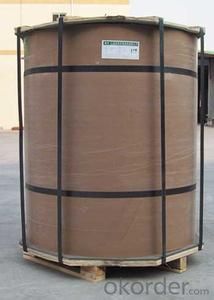
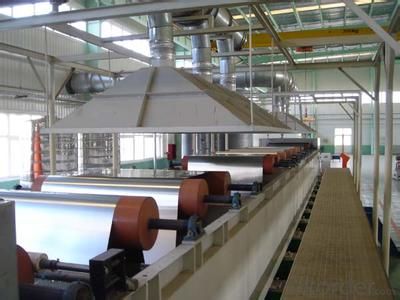
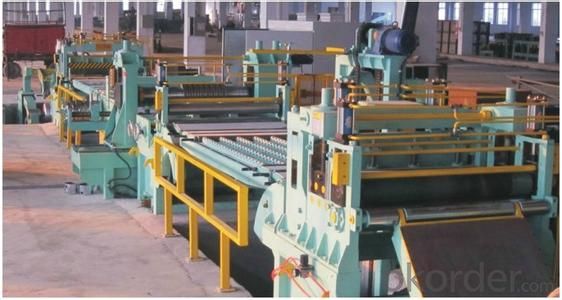
4. Aluminum coil - Alloy 1050 Specification
Chemical component/% | |||||||||||
Alloy | Si | Fe | Cu | Mn | Mg | Cr | Ni | Zn | Ti | Zr | Al |
1050 | 0.25 | 0.40 | 0.05 | 0.05 | 0.05 | _ | _ | 0.05 | 0.03 | _ | 99.5 |
5.FAQ of Aluminum coil- Alloy 1050
We have organized several common questions for our clients,may help you sincerely:
1. What is your monthly quantity?
For Aluminum coil Alloy 1050, our production capacity is 5,000 tons per month.
2. When is your delivery time?
The delivery time for Aluminum coil Alloy 1050 will be around 30-45 days after receiving the down payment or original LC.
3. How to control the quality
We have professional QC to inspect in every processing of Aluminum coil Alloy 1050, if there is a problem with the products, we are not allowed to make shipments.
- Q: Can aluminum coils be fabricated or formed into different shapes?
- Yes, aluminum coils can be fabricated or formed into different shapes. Aluminum is a malleable metal, which means it can be easily shaped and manipulated without cracking or breaking. Coil fabrication techniques such as bending, rolling, and stamping can be used to transform aluminum coils into various shapes and designs. These coils can then be further processed or assembled to create products with specific geometries, such as automobile parts, kitchen utensils, electrical components, or even architectural structures. The flexibility of aluminum as a material allows for a wide range of possibilities when it comes to shaping and forming it into different configurations.
- Q: Can you create a tank, AFV, IFV etc. from aluminium or is this just a stupid idea that would kill everyone inside?
- Most military vehicles these days are made out of a super high grade strength linoleum. That way, if they're ever needed to be lifted out by a helicopter or some other flying vehicle, they're light enough. And it also is easier to repair damage and clean off blood stains as compared to other types of metal.
- Q: Is it safe or advisable to use aluminum coil for wrapping food?
- <p>Using aluminum coil to wrap food is not recommended. Aluminum can react with acidic or alkaline foods, potentially leaching harmful aluminum particles into the food. It's also not designed for food contact and may not be safe at high temperatures. Instead, use food-grade aluminum foil, which is specifically designed for cooking and wrapping food, ensuring it doesn't come into contact with non-food surfaces that could contaminate it.</p>
- Q: Are aluminum coils suitable for food storage containers?
- Aluminum coils are indeed appropriate for food storage containers. This material is highly favored for such containers because of its many beneficial qualities. To begin with, aluminum is lightweight, which makes it easy to handle and transport. Moreover, it possesses excellent thermal conductivity, allowing for quick heating or cooling, making it perfect for storing both hot and cold food. Additionally, aluminum is resistant to corrosion and does not react with acidic or alkaline foods, ensuring that the taste and quality of the food remain unaffected. Furthermore, aluminum is an environmentally friendly choice as it is sustainable and can be recycled. However, it is worth noting that aluminum containers should be coated with a food-grade lining to prevent any potential interaction between the metal and the food, particularly with acidic foods. In conclusion, aluminum coils are a suitable option for food storage containers due to their lightweight nature, thermal conductivity, resistance to corrosion, and recyclability.
- Q: How are aluminum coils protected against scratches and damage?
- Aluminum coils are protected against scratches and damage through several methods. One common method is the application of a protective coating or film on the surface of the coil. This coating serves as a barrier between the coil and any potential sources of damage, such as abrasion or impact. Another way to protect aluminum coils is by using a process called coil coating. In this process, the coil is cleaned, pre-treated, and coated with a layer of protective paint or resin. This coating not only enhances the appearance of the coil but also provides a protective layer against scratches and other forms of damage. Additionally, during the manufacturing and handling process, aluminum coils are often wrapped or packaged in materials that provide cushioning and protection. This helps to prevent any scratches or dents that may occur during transportation or storage. Lastly, proper handling and storage practices play a crucial role in protecting aluminum coils against scratches and damage. It is important to handle the coils with care, using appropriate equipment and techniques to minimize the risk of scratching or other forms of damage. Storing the coils in a clean and dry environment can also help prevent any potential damage. Overall, a combination of protective coatings, coil coating processes, proper handling, and storage practices ensures that aluminum coils are well-protected against scratches and damage, maintaining their quality and appearance.
- Q: Can aluminum coils be customized according to specific requirements?
- Yes, aluminum coils can be customized according to specific requirements. Aluminum coils can be tailored to meet specific dimensions, thicknesses, and finishes to suit various applications. Customization options can include specific alloys, tempering processes, and even specialized coatings to enhance corrosion resistance or improve appearance. Additionally, aluminum coils can be fabricated with specific features such as perforations, embossing, or edge treatments to meet specific functional or aesthetic requirements. With the ability to be customized, aluminum coils offer flexibility and versatility for a wide range of industries and applications.
- Q: Are aluminum coils suitable for construction applications?
- Yes, aluminum coils are suitable for construction applications. They are lightweight, durable, and corrosion-resistant, making them an ideal choice for various construction purposes such as roofing, siding, and insulation. Additionally, aluminum coils can be easily formed and shaped, providing flexibility in design and installation.
- Q: Can aluminum coils be used in roofing or cladding systems?
- Yes, aluminum coils can be used in roofing or cladding systems. Aluminum is a lightweight and corrosion-resistant material, making it suitable for these applications. It offers durability, flexibility, and ease of installation, making it a popular choice in the construction industry.
- Q: Can aluminum coils be used in the production of heat sinks?
- Yes, aluminum coils can be used in the production of heat sinks. Aluminum has excellent thermal conductivity, making it an ideal material for heat dissipation. Coiling the aluminum into a specific shape allows for increased surface area, enhancing the heat transfer capabilities of the heat sink.
- Q: What are the methods to prevent rust formation on aluminum coils during storage and transportation?
- <p>To prevent rust on aluminum coils during storage and transportation, ensure that the coils are clean and dry before storage. Store them in a cool, dry place away from moisture and corrosive substances. Use protective wrappings or coatings to shield the coils from the environment. Maintain proper ventilation to reduce humidity. Avoid stacking the coils directly on the ground; use pallets or racks to keep them off damp surfaces. Regularly inspect the coils for signs of moisture or damage and address any issues promptly.</p>
Send your message to us
Aluminum Sheet Coil Price - Alloy 1050 High Corrosion Resistance Coil
- Loading Port:
- Shanghai
- Payment Terms:
- TT or LC
- Min Order Qty:
- 10 m.t.
- Supply Capability:
- 5000 m.t./month
OKorder Service Pledge
OKorder Financial Service
Similar products
Hot products
Hot Searches
Related keywords
